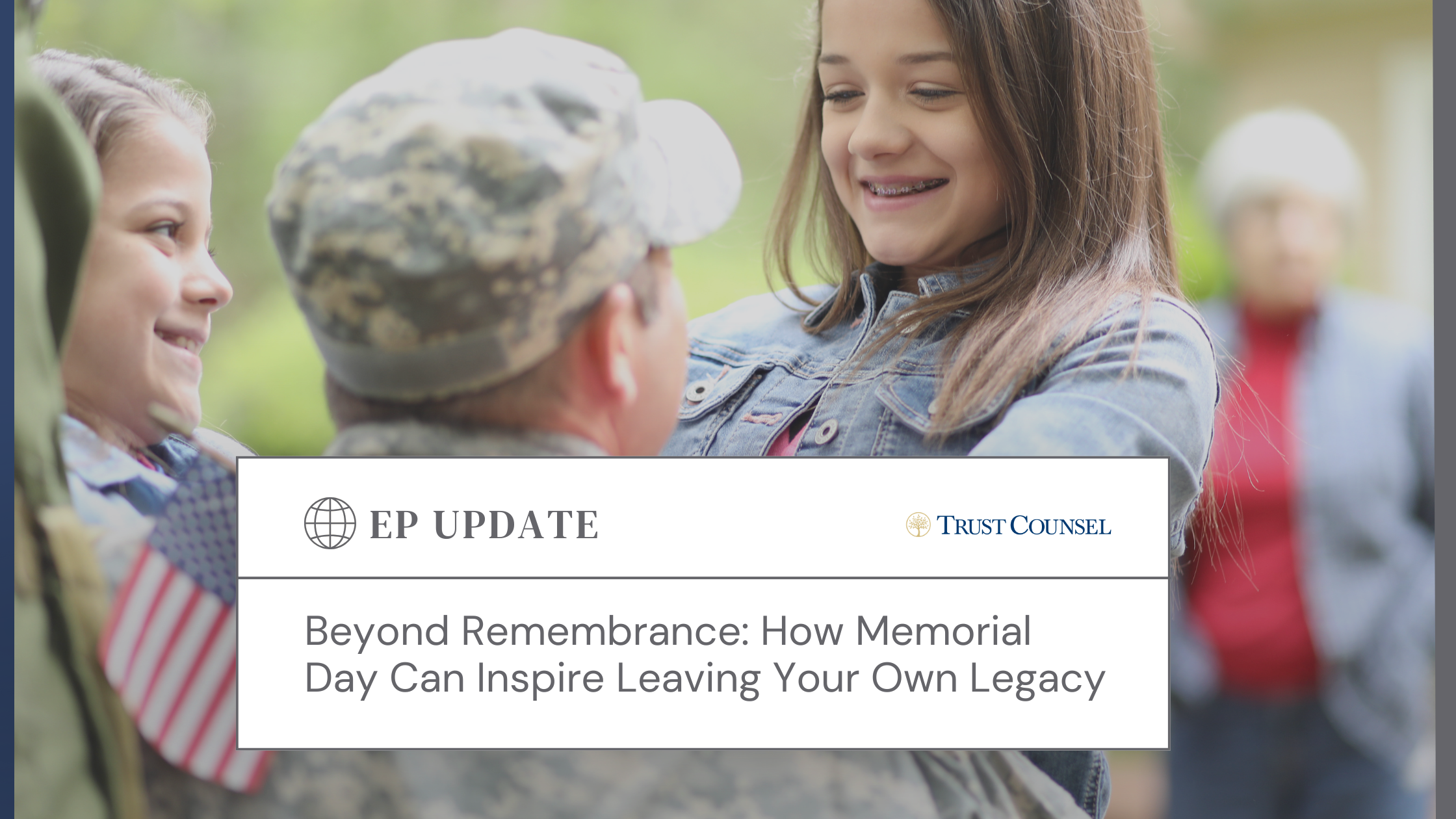
Is your family a “blended family”?
If yes, then you are in good company. It seems some 42 million adult Americans have been married more than once, a 20 million increase just since 1980. Not only do holidays present unique challenges to blended families, but so does estate planning.
Are you going to disinherit your new spouse or your own children from a prior marriage? Without proper planning, it will be one or the other … or both to an extent you do not intend.
I read an article the other day that observed several means to provide an inheritance for your own children when you remarry include 1) making them the primary beneficiaries of a life insurance policy under which you are the insured, 2) creating a trust for them, or 3) placing certain real property under joint ownership with them.
Of these three options, I strong counsel against the last one offered.
Why? Adding the name or names of anyone to your property, whether real (estate) property or other property (that brokerage account), can have unintended consequences. For starters, such property will be subject to all of the legal and financial risks of your new joint owner or owners, i.e. divorces, lawsuits and bankruptcies … oh my! Not to mention the loss of a step-up in tax basis (that is tax lingo for the fact that your beneficiaries are going to have to pay more in taxes).
On the other hand, one critical must do when it comes to a second marriage is to get an attorney to write (or update) your last will and testament or your Trust. Be extremely specific about which heir gets what. Your bequests must be stated clearly. In fact, the less ambiguity and the fewer issues that will arise. While you are at it, update the beneficiary designations for retirement plans, investment accounts, and insurance policies.
For Blended Families, there are multiple solutions; however, today (and every day) one of my favorites is the QTIP Trust. A properly designed and funded QTIP allows you to provide a lifetime income for your new spouse and leave the remaining principal to your own children (not his or her children) when your new spouse dies.
But wait, there is more … a QTIP is a gift that gives in return, especially when you want to disinherit the IRS. This could get a little technical and there is much more to the QTIP story that could be told, but I will stop there and let you consult an experienced estate planning attorney like myself to work out the details for your unique circumstances. Note: This is not a do-it-yourself project.





